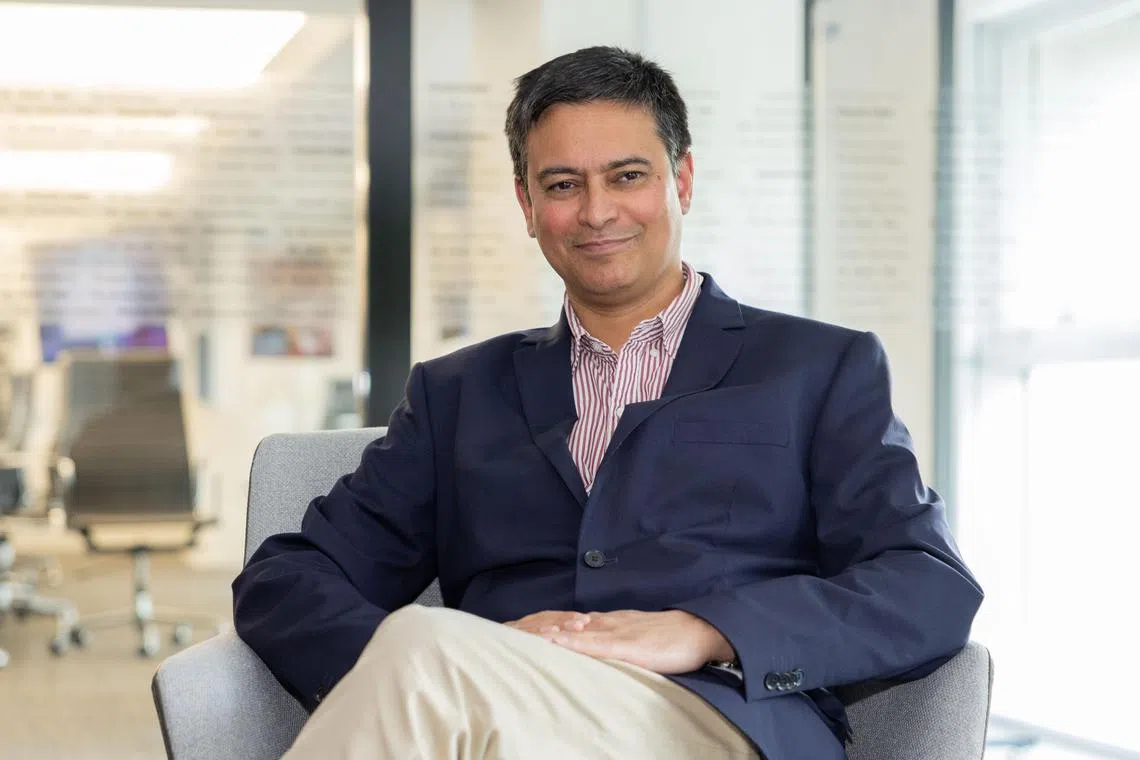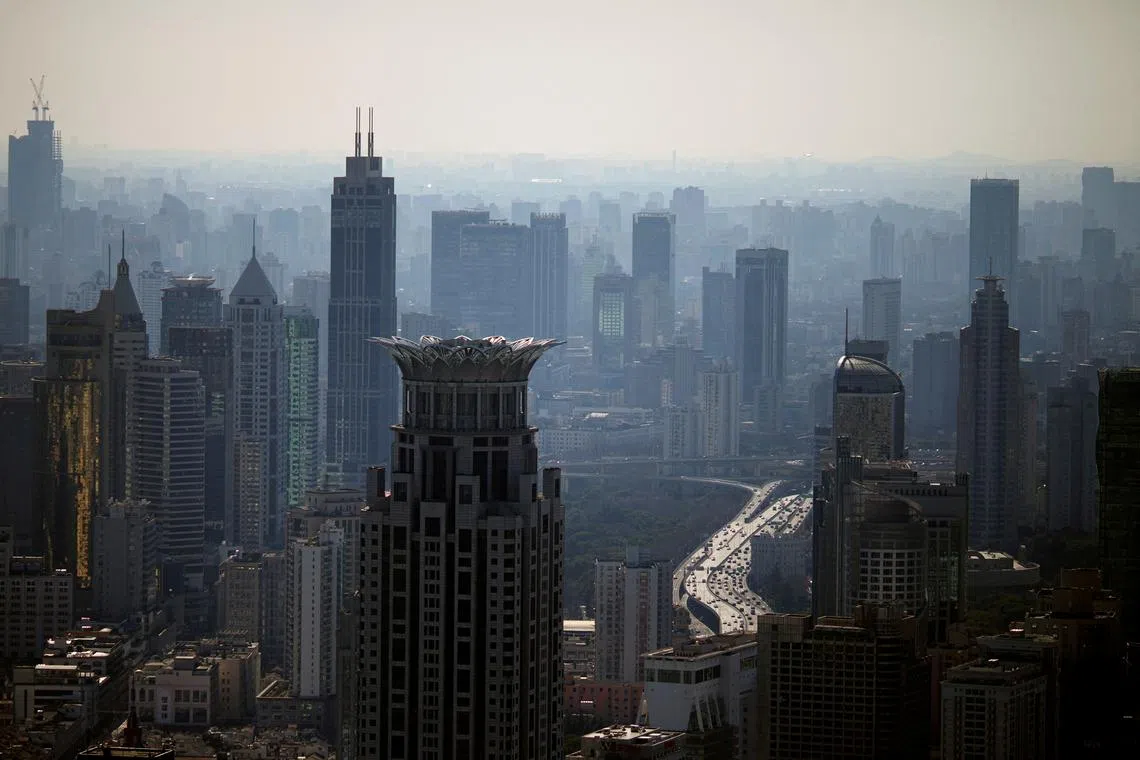Want more innovation? China should open up more, says Harvard scholar
Sign up now: Get insights on Asia's fast-moving developments

Professor Rana Mitter, 54, during the roundtable discussion with Straits Times editors and journalists at SPH Media on June 21, 2024.
ST PHOTO: BRIAN TEO
Follow topic:
SINGAPORE – The technological strides that China has made in recent decades show that a country under an authoritarian leadership can innovate, but it will need to open up more if it wants to push frontiers, said Harvard scholar Rana Mitter.
China is in a neck-and-neck race with the West for technological solutions to make its economy more competitive and its military more powerful.
In what has been perceived as a move to prevent its rival from getting ahead, the US has implemented measures such as levying heavy tariffs on Chinese electric vehicles
Amid this technological competition, China’s task of nurturing home-grown talent in fields including artificial intelligence and space has become more urgent.
“A major challenge for China is for it to work out how to get from where it is now to where it wants to be – where higher value-added tech jobs are a real possibility,” Professor Mitter told The Straits Times on June 21.
He is ST Lee chair in US-Asia relations at the Harvard Kennedy School.
He pointed out that China’s track record in technological advancement in the past two decades and the experience of the former Soviet Union show that it is not impossible for authoritarian states to produce scientific innovations.
“But it is clear there is a barrier to further growth if there isn’t more openness,” noted Prof Mitter, who was in Singapore for a Harvard alumni event.
He stressed that a call for more openness is not a call to overhaul China’s political system – an endgame that the ruling Communist Party of China will not allow. “More openness just means that people can promote ideas that might contradict conventional wisdom or the status quo, but are needed for the state to learn how to adapt to changing realities.”
Prof Mitter, a historian by training, pointed out how Beijing had previously demonstrated the capacity for more openness.
Former leader Deng Xiaoping urged the party in 1978 to abandon blind adherence to dogma and instead embrace a practical, fact-based approach of “shi shi qiu shi” or “seeking truth from facts”.
He ushered in an era of reform and opening up, during which the party loosened its grip and allowed the economy and society to flourish. The result was breakneck economic growth that uplifted the lives of generations of people.
Mr Deng himself visited Singapore in 1978, getting a first-hand look at the growth and development of the island.
Four decades on, there are signs that the country is heading in an opposite direction. President Xi Jinping has ordered that all matters be subjugated to the party’s command or oversight, spelt out clearly with a dictum proclaimed in 2017.
He has pumped state resources to prop up state-owned enterprises while reining in private companies deemed to have grown too “unruly”, with a clampdown in the internet finance, property and education sectors.

China is in a neck-and-neck race with the West for technological solutions to make its economy more competitive and its military more powerful.
PHOTO: REUTERS
Mr Xi – who secured a precedent-breaking third term as president
Observers worry that when the Chinese leadership does not get honest policy feedback, policies risk becoming rigid and unresponsive.
Prof Mitter said: “Are the leaders getting data and information of sufficiently high quality? And do you have sufficient mechanisms to test that data and potentially embrace unwelcome results?”
Recounting a recent visit to Beijing, he was struck by a palpable sense of malaise engulfing the world’s second-largest economy. Worried about unemployment and mortgage payments, some youth have expressed their disillusionment by declaring on social media they are “lying flat” or “tang ping”, or “rotting away” or “bai lan”.
Mr Xi has tried to inspire pride and confidence among his people by harking back to the 5,000 years of glorious history of the Chinese civilisation. He has sought to redefine the Chinese identity in terms of a renaissance revival, with a promise to lead his people to realise the great rejuvenation of the Chinese nation.
He has also called for Marxism, the fundamental ideology underpinning the party’s raison d’etre, to be integrated with “fine traditional Chinese culture” such as Confucianism.
Prof Mitter posited that Mr Xi might have hoped the Confucian emphasis on stability and respect for authority can deflect potential disgruntlement towards the government.
He describes the China that Mr Xi wants to reinvent as one that is economically prosperous, technologically advanced, but operating under a highly constrained, top-down party-controlled system of politics in which frank debates over decision-making become ever harder to conduct.
“He is trying to craft an identity that he thinks is suited for an era of Chinese rise,” said Prof Mitter.
As it is almost impossible to do any empirical social science study on this effort in the current climate, its effectiveness is uncertain for now, he said.
But China’s top priority has to be maintaining regional stability, Prof Mitter added. Any policy which jeopardises that will put China’s rise in danger, along with the fate of the global economy.

